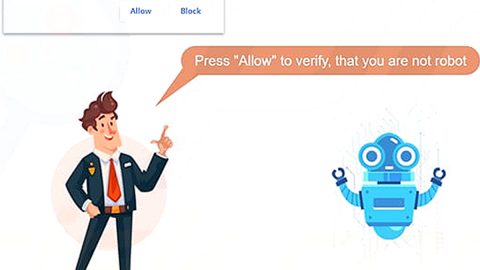If you ask the average user what they think of Windows 10, they might answer something like “It’s pretty good, but I’ve heard there are some serious privacy issues.”
Well, according to a new report by TechRepublic.com, the Windows 10 privacy settings are enormously overblown.
So while headlines say things like “Windows 10: Privacy Nightmare” and “Windows 10 Violates Your Privacy by Default”, the truth is that there’s a legitimate reason behind each and every one of these settings.
First and most importantly, Windows 10’s default privacy settings do not allow Microsoft to access your most intimate and forbidden secrets. In fact, Microsoft appears to collect far less data than major websites like Google, Amazon, Facebook, Twitter, and even Apple – to name just a few.
But at the same time, you have to realize that you’re being watched every time you’re on the internet.
With that in mind, here are 5 Windows 10 privacy settings that aren’t as scary as you probably think:
1) Windows 10 Generates Personalized Advertisements for You
One frequently vilified part of Windows 10’s privacy settings can be found under the General tab in the Windows 10 privacy configuration screen.

Basically, these settings allow Microsoft to generate an advertising ID that is unique to you. That sounds bad, right?
Why It’s Not that Bad
Microsoft does this, however, to prevent third party advertisers from actually knowing anything about you by name or other identifying information. It keeps you anonymous to third-party advertisers. At the same time, these advertisers can use an algorithm to determine which advertisements you might be interested in.
No human actually looks at your advertising ID – just the algorithm.
Windows 10 also lets you turn off this setting instantly to get generic advertisements. Do that by going to the General tab in the Windows 10 privacy configuration screen.
Windows 10 Tracks your Location
Many people are concerned that Windows 10 is allowed to track the location of your mobile devices. Windows 10 does this by default.
Why It’s Not That Bad
Whether you’re using Windows, iOS, or Android, all major operating systems available today enable location tracking by default.
Of course, “because everyone else does it” isn’t a great excuse.
A better excuse is to understand why Microsoft does it. Microsoft uses your location to do things like find the nearest coffee shop to your location or tell you whether or not you need an umbrella before going out of your house.
Microsoft isn’t tracking your every footstep and sharing it with government spies. They’re tracking your location to deliver basic features and functions of their OS.
Windows 10 is Always Listening
Windows 10 is always listening to the ambient noise. When you talk to your computer, Microsoft listens.

Why It’s Not That Bad
Microsoft isn’t doing this because it wants to record your personalized conversations. Nor does Microsoft want to identify trigger words or use your speech to deliver more personalized ads.
Instead, Microsoft is doing this because of Cortana. Cortana is always listening for the trigger words “Hey Cortana”, which you can then use to interact with Microsoft’s helpful desktop search agent.
If you don’t want to use Cortana and don’t want Microsoft to constantly listen to you, just turn this off.
Feedback & Diagnostics
Microsoft keeps track of which of your apps gets used the most often, which apps never get used, and which apps cause system crashes, among other feedback and diagnostic information.
Why It’s Not That Bad
This is where Windows 10 haters seem to stretch the bounds of believability the most: “Why is Microsoft collecting feedback and diagnostics data from the programs we run? What kind of evil stuff are they doing with this data?”
In reality, Microsoft’s feedback and diagnostics system lets Microsoft gather information they need. They use this information to know where to make improvements, where to cut excess, and where to deliver more on a particular experience.
It’s About Personalization
Ultimately, Microsoft – like all service providers in this day and age – collects your personal data to deliver a more personalized experience.
This is one of the advantages of modern technology – the devices we use today know what we like, when we like it, and how we like it.
Of course, everything can be turned off if you want a more general experience.
If you really think Microsoft is collecting your data for some nefarious purpose, then you might think you’re more important than you actually are.











